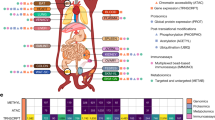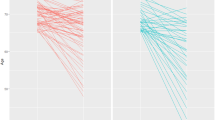Abstract
Introduction:
Genetics is behind our circadian machinery. CLOCK (Circadian Locomotor Output Cycles Kaput) 3111T/C single-nucleotide polymorphism (SNP) has been previously related to obesity and weight loss. However, phenotypic association and functionality of CLOCK 3111 locus is still unknown. The aim of this study was to determine, in free-living conditions, if the presence of CLOCK 3111C in overweight women could be related to (a) circadian disorders, and (b) changes in sleep quality, to improve understanding of the previously demonstrated associations with obesity and reduced weight loss of the C carriers.
Methods:
Wrist temperature, actimetry and position (TAP) and TAP variables were measured as markers of circadian functionality during 8 consecutive days. A rest–activity and food diary was also completed, whereas sleep quality was determined by domiciliary polysomnography. We recruited 85 women who were overweight with body mass index (BMI) of 28.59±4.30 kg m−2 and age 43±12 years. From this sample, we found that 43 women were carrying the minor allele (C) for CLOCK 3111T/C SNP and 42 women were TT carriers (major allele carriers). Both groups of patients were matched for number, age, obesity parameters and energy intake.
Results:
Compared with TT subjects, who showed more robust circadian rhythm profiles, patients with the C allele displayed significant circadian abnormalities: lower amplitude and greater fragmentation of the rhythm, a less stable circadian pattern and a significantly weakened circadian function, as assessed by the circadian function index (CFI). C subjects were also less active, started their activities later in the morning and were sleepier during the day, showing a delayed acrophase that characterizes ‘evening-type’ subjects.
Conclusion:
C genetic variants in CLOCK 3111T/C display a less robust circadian rhythm than TT and a delayed acrophase that characterizes ‘evening-type’ subjects. We support the notion that identifying CLOCK genotypes in patients may assist the therapist in characterization of the roots of the metabolic problem.
This is a preview of subscription content, access via your institution
Access options
Subscribe to this journal
Receive 12 print issues and online access
$259.00 per year
only $21.58 per issue
Buy this article
- Purchase on Springer Link
- Instant access to full article PDF
Prices may be subject to local taxes which are calculated during checkout

Similar content being viewed by others
References
Serretti A, Benedetti F, Mandelli L, Lorenzi C, Pirovano A, Colombo C et al. Genetic dissection of psychopathological symptoms insomnia in mood disorders and CLOCK gene polymorphism. Am J Med Genet B 2003; 121B: 35–38.
Takao T, Tachikawa H, Kawanishi Y, Mizukami K, Asada T . CLOCK gene T3111C polymorphism is associated with Japanese schizophrenics: a preliminary study. Eur Neuropsychopharmacol 2007; 17: 273–276.
Benedetti F, Dallaspezia S, Fulgosi MC, Lorenzi C, Serretti A, Barbini B et al. Actimetric evidence that CLOCK 3111T/C SNP influences sleep and activity patterns in patients affected by bipolar depression. Am J Med Genet B 2007; 144B: 631–635.
Benedetti F, Radaelli D, Bernasconi A, Dallaspezia S, Falini A, Scotti G et al. Clock genes beyond the clock: CLOCK genotype biases neural correlates of moral valence decision in depressed patients. Genes Brain Behav 2008; 7: 20–25.
Kishi T, Kitajima T, Ikeda M, Yamanouchi Y, Kinoshita Y, Kawashima K et al. Association study of clock gene (CLOCK) and schizophrenia and mood disorders in the Japanese population. Eur Arch Psychiatry Clin Neurosci 2009; 259: 293–297.
Sookoian S, Gemma C, Gianotti TF, Burgueño A, Castaño G, Pirola CJ . Genetic variants of Clock transcription factor are associated with individual susceptibility to obesity. Am J Clin Nutr 2008; 87: 1606–1615.
Garaulet M, Corbalán MD, Madrid JA, Morales E, Baraza JC, Lee YC et al. CLOCK gene is implicated in weight reduction in obese patients participating in a dietary programme based on the Mediterranean diet. Int J Obes (Lond) 2010; 34: 516–523.
Garaulet M, Sánchez-Moreno C, Smith CE, Lee YC, Nicolás F, JM Ordovás . Ghrelin, sleep reduction and evening preference: relationships to CLOCK 3111T/C SNP and weight loss. PLoS One 2011; 6: e17435.
Barclay NL, Eley TC, Mill J, Wong CC, Zavos HM, Archer SN . Sleep quality and diurnal preference in a sample of young adults: associations with 5HTTLPR, PER3, and CLOCK 3111. Am J Med Genet B 2011; 156B: 681–690.
Sadeh A, Acebo C . The role of actigraphy in sleep medicine. Sleep Med 2002; 6: 113–124.
Acebo C, Le Bourgeois MK . Actigraphy. Respir Care Clin N Am 2006; 12: 23–30.
Sarabia JA, Rol MA, Mendiola P, Madrid JA . Circadian rhythm of wrist temperature in normal-living subjects—a candidate of new index of the circadian system. Physiol Behav 2008; 95: 570–580.
Ortiz-Tudela E, Martinez-Nicolas A, Campos M, Rol MÁ, Madrid JA . New integrated variable based on thermometry, actimetry and body position (TAP) to evaluate circadian system status in humans. PLoS Comput Biol 2010; 6: e1000996.
Garaulet M, Corbalán-Tutau MD, Madrid JA, Baraza JC, Parnell LD, Lee YC et al. PERIOD2 variants are associated with abdominal obesity, psycho-behavioral factors, and attrition in the dietary treatment of obesity. J Am Diet Assoc 2010; 110: 917–921.
Benedetti F, Radaelli D, Bernasconi A, Dallaspezia S, Falini A, Scotti G et al. Clock genes beyond the clock: CLOCK genotype biases neural correlates of moral valence decision in depressed patients. Genes Brain Behav 2008; 7: 20–25.
Livak KJ . Allelic discrimination using fluorogenic probes and the 5′ nuclease assay. Genet Anal 1999; 14: 143–149.
Garaulet M, Lee YC, Shen J, Parnell LD, Arnett DK, Tsai MY et al. Genetic variants in human CLOCK associate with total energy intake and cytokine sleep factors in overweight subjects (GOLDN population). Eur J Hum Genet 2010; 18: 364–369.
Horne JA, Ostberg O . A self-assessment questionnaire to determine morningness–eveningness in human circadian rhythms. Int J Chronobiol 1976; 4: 97–110.
Taillard J, Philip P, Chastang JF, Bioulac B . Validation of Horne and Ostberg morningness–eveningness questionnaire in a middle-aged population of Frenchworkers. J Biol Rhythms 2004; 19: 76–86.
Van Someren EJW, Mirmiran M, Swaab DF . Non-pharmacological treatment of sleep and wake disturbances in aging and Alzheimer’s disease: chronobiological perspectives. Behav Brain Res 1993; 57: 235–253.
Huang YL, Liu RY, Wang QS, Van Someren EJ, Xu H, Zhou JN . Age-associated difference in circadian sleep–wake and rest–activity rhythms. Physiol Behav 2002; 76: 597–603.
Corbalán-Tutau MD, Madrid JA, Ordovás JM, Smith CE, Nicolás F, Garaulet M . Differences in daily rhythms of wrist temperature between obese and normal-weight women: associations with metabolic syndrome features. Chronobiol Int 2011; 28: 425–433.
Carbalho-Bos S, Riemersma-van der Lek RF, Waterhouse J, Reilly T, Van Someren EJ . Strong association of the rest–activity rhythm with well-being in demented elderly women. Am J Geriatr Psychiatry 2007; 15: 92–100.
Corbalán-Tutau D, Madrid JA, Nicolás F, Garaulet M . Daily profile in two circadian markers ‘melatonin and cortisol’ and associations with metabolic syndrome components. Physiol Behav 2012. e-pub ahead of print 15 June 2012.
Kistler A, Mariauzouls C, Von Berlepsch K . Fingertip temperature as an indicator for sympathetic responses. Int J Psychophysiol 1998; 29: 35–41.
Raymann RJ, Swaab DF, Van Someren EJW . Skin temperature and sleep-onset latency: changes with age and insomnia. Physio. Behav 2007; 90: 257–266.
Katzenberg D, Young T, Finn L, Lin L, King DP, Takahashi JS et al. A CLOCK polymorphism associated with human diurnal preference. Sleep 1998; 21: 569–576.
Robilliard DL, Archer SN, Arendt J, Lockley SW, Hack LM, English J et al. The 3111 Clock gene polymorphism is not associated with sleep and circadian rhythmicity in phenotypically characterized human subjects. J Sleep Res 2002; 11: 305–312.
Johansson C, Willeit M, Smedh C, Ekholm J, Paunio T, Kieseppä T et al. Circadian clock-related polymorphisms in seasonal affective disorder and their relevance to diurnal preference. Neuropsychopharmacology 2003; 28: 734–739.
Voinescu B, Thome J, Orasan R . The rs1801260 CLOCK polymorphism, links to depression, insomnia and diurnal preference—preliminary findings from a Romanian sample. Hum Vet Med 2009; 1: 67–673.
Barclay NL, Eley TC, Mill J, Wong CC, Zavos HM, Archer SN et al. Sleep quality and diurnal preference in a sample of young adults: associations with 5HTTLPR, PER3, and CLOCK 3111. Am J Med Genet B 2011; 156B: 681–690.
Garaulet M, Lee YC, Shen J, Parnell LD, Arnett DK, Tsai MY et al. CLOCK genetic variation and metabolic syndrome risk: modulation by monounsaturated fatty acids. Am J Clin Nutr 2009; 90: 1466–1475.
Zhou F, He X, Liu H, Zhu Y, Jin T, Chen C et al. Functional polymorphisms of circadian positive feedback regulation genes and clinical outcome of Chinese patients with resected colorectal cancer. Cancer 2012; 118: 937–946.
Acknowledgements
This study was supported by grants from Tomás Pascual and Pilar Gómez-Cuétara Foundations, Spanish Government of Science and Innovation (BFU2011-24720), Séneca Foundation from the Government of Murcia (15123/PI/10), National Heart, Lung and Blood Institute Grant HL-54776, National Institute of Diabetes and Digestive and Kidney Diseases Grant DK075030 and by contracts 53-K06-5-10 and 58-1950-9-001 from the US Department of Agriculture Research.
Author information
Authors and Affiliations
Corresponding author
Ethics declarations
Competing interests
The authors declare no conflict of interest.
Rights and permissions
About this article
Cite this article
Bandín, C., Martinez-Nicolas, A., Ordovás, J. et al. Differences in circadian rhythmicity in CLOCK 3111T/C genetic variants in moderate obese women as assessed by thermometry, actimetry and body position. Int J Obes 37, 1044–1050 (2013). https://doi.org/10.1038/ijo.2012.180
Received:
Revised:
Accepted:
Published:
Issue Date:
DOI: https://doi.org/10.1038/ijo.2012.180



